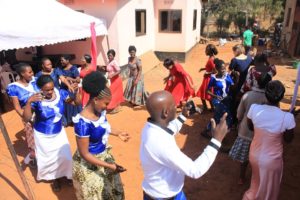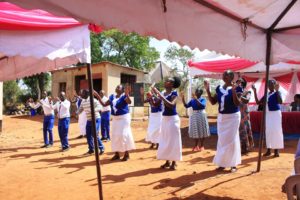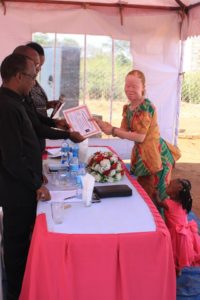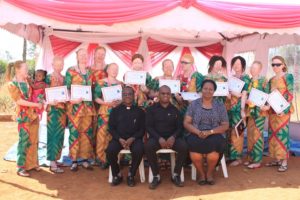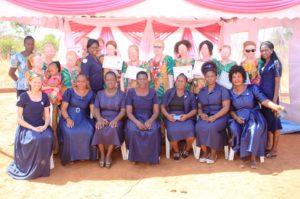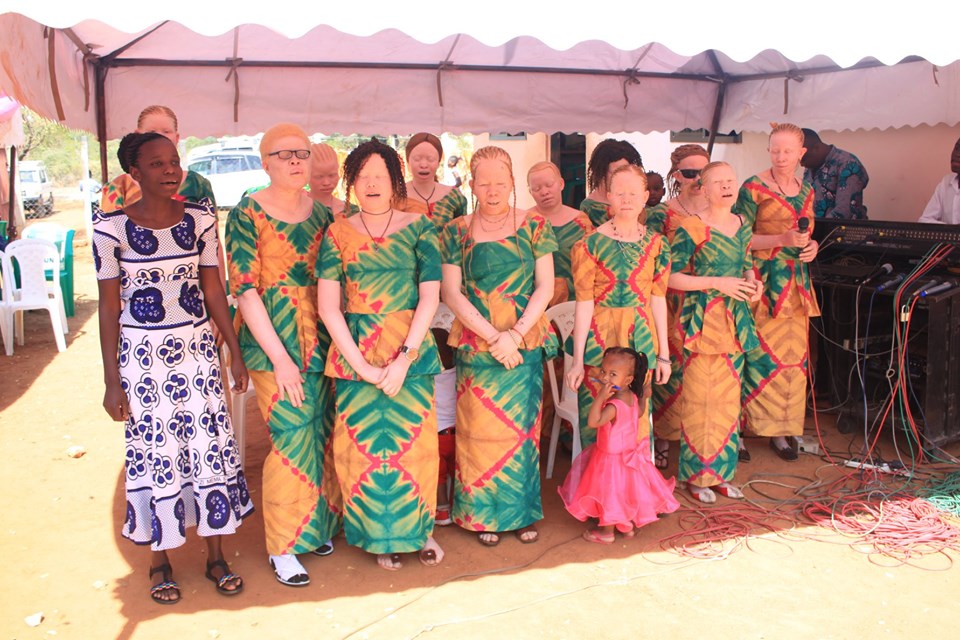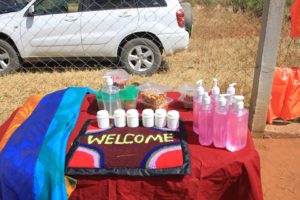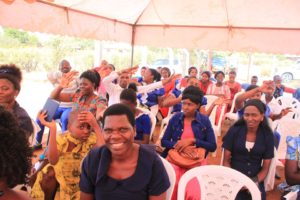Linda Funke, missionary in Tanzania, writes a beautiful post that will bring tears of joy and celebration as the 5th class graduates from Right to Live with Albinism. We rejoice with them. Photo credits to Linda who generously shares her pictures.
Today we had the opportunity to celebrate the 5th graduation of the Right to Live With Albinism project. Two and a half years ago the South East of Lake Victoria diocese and the Finnish Evangelical Lutheran Mission partnered together to start this program which empowers young women with albinism. We are so proud of the twelve women who graduated and the deaconesses who mentored and taught them. For the last 4 months, they have been learning how to make batik cloth, clothes, mats, baked goods, lotions, and soaps.They have also been learning how to start a business to sustain themselves and their families. A fundraiser was held during the graduation so that each woman will return to her community with her own sewing machine and start-up materials. We pray that they will be able to live with security and dignity.
A bit of back history on why this program is needed: Albinism is a genetic condition which results in low amounts of melanin in the skin and poor eyesight. Tanzania and neighboring country Burundi have the highest percentages of people with albinism worldwide. 1 in every 1429 people in Tanzania has albinism. This compares to 1 in every 20,000 people in western countries. People with albinism struggle to protect themselves against skin cancer, but in Tanzania and other East African countries, they also face even greater dangers. People with albinism experience much prejudice in their communities and are often raped, maimed, or killed by people, particularly witch doctors, who believe their bodies are magical. The Lutheran church has been doing advocacy work, meeting with witchdoctors to teach them the truth about people with albinism, and supporting people with albinism who face persecution. The diocese has discovered that the more these women are seen as valued and productive members of the community, the more likely members of that community are to protect them from threats. The diocese is hoping to start a program like this for young men as well.
